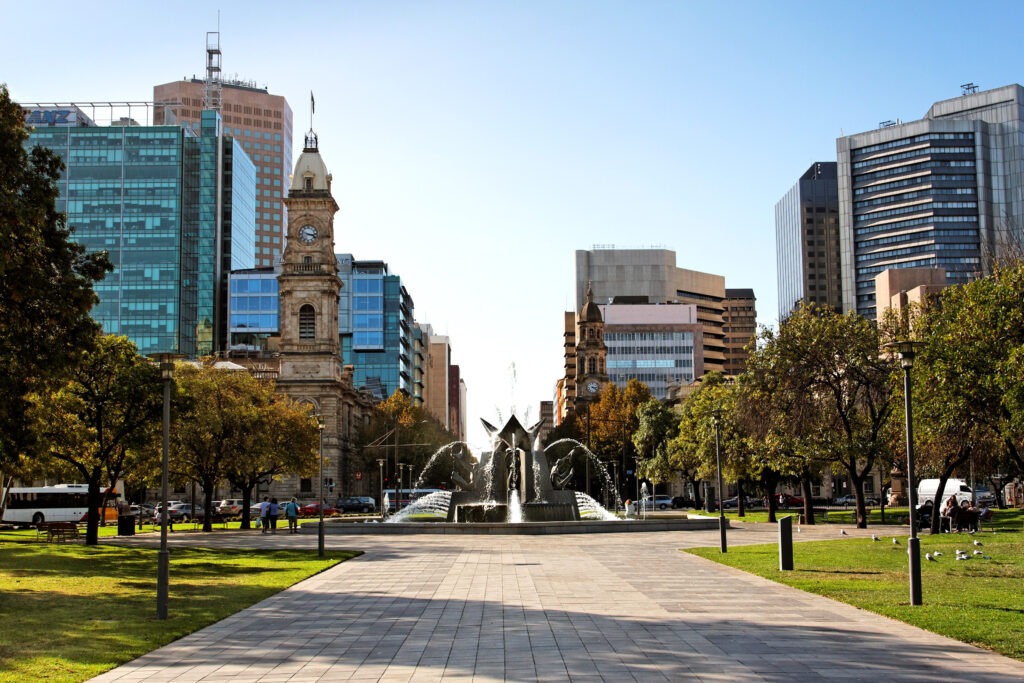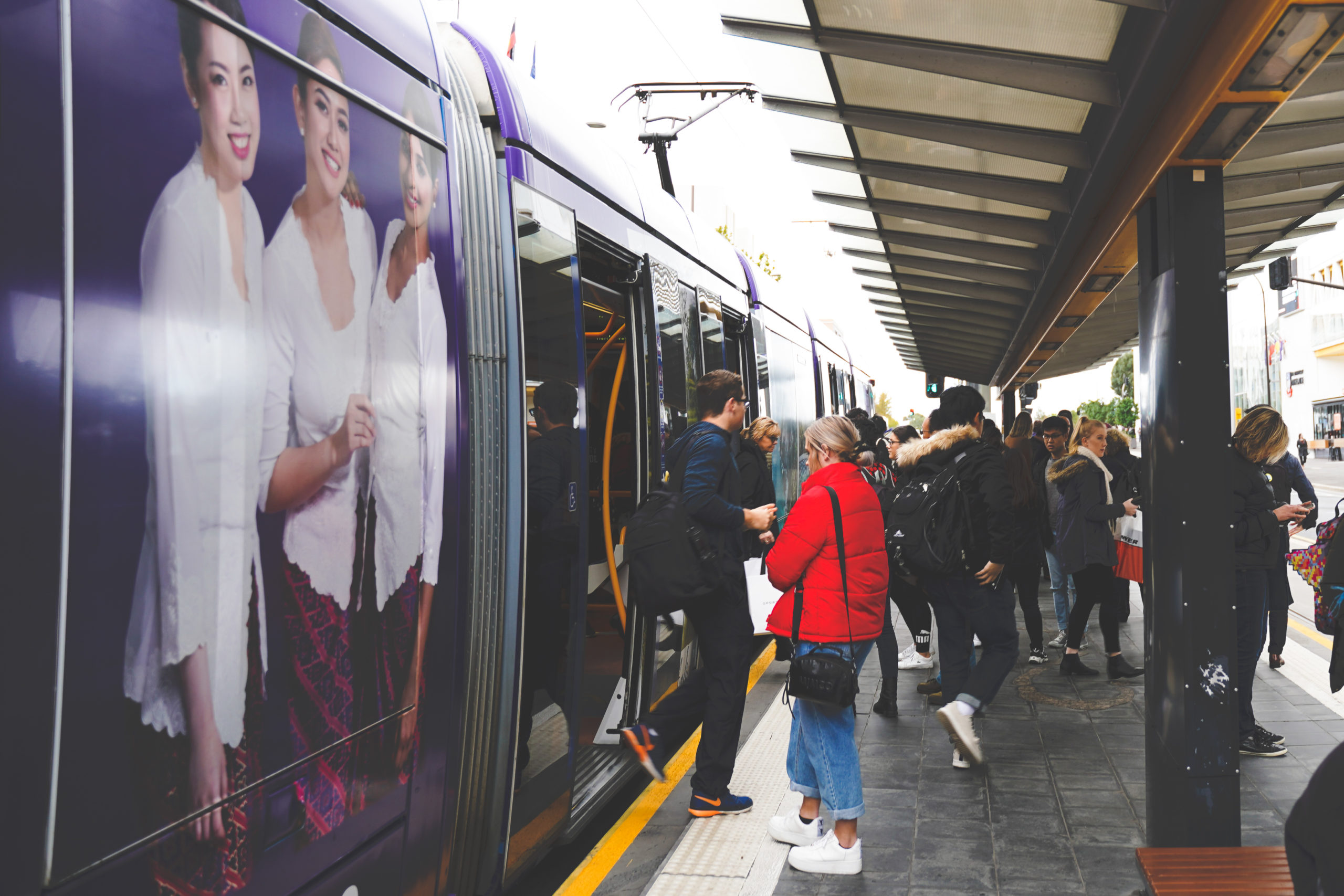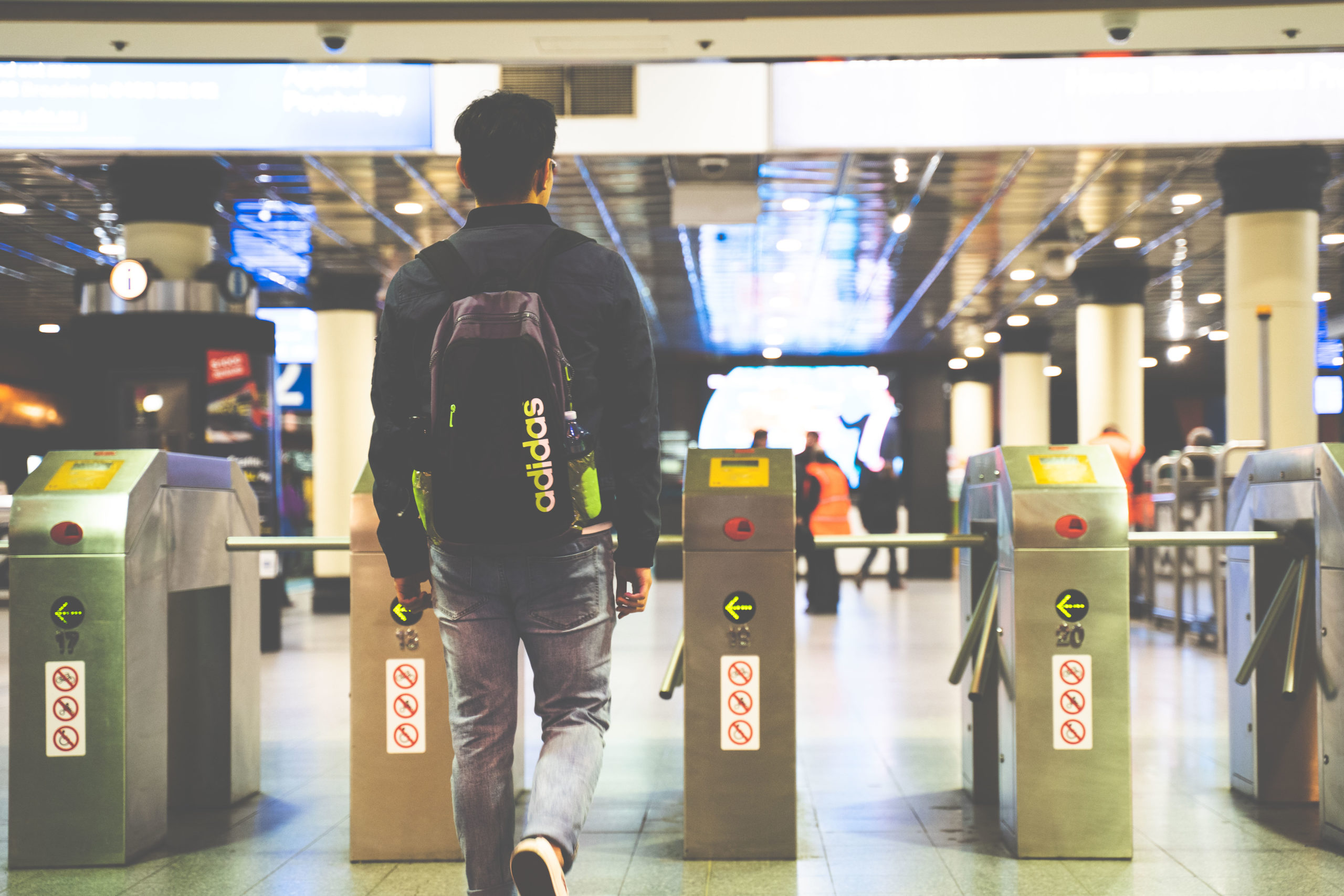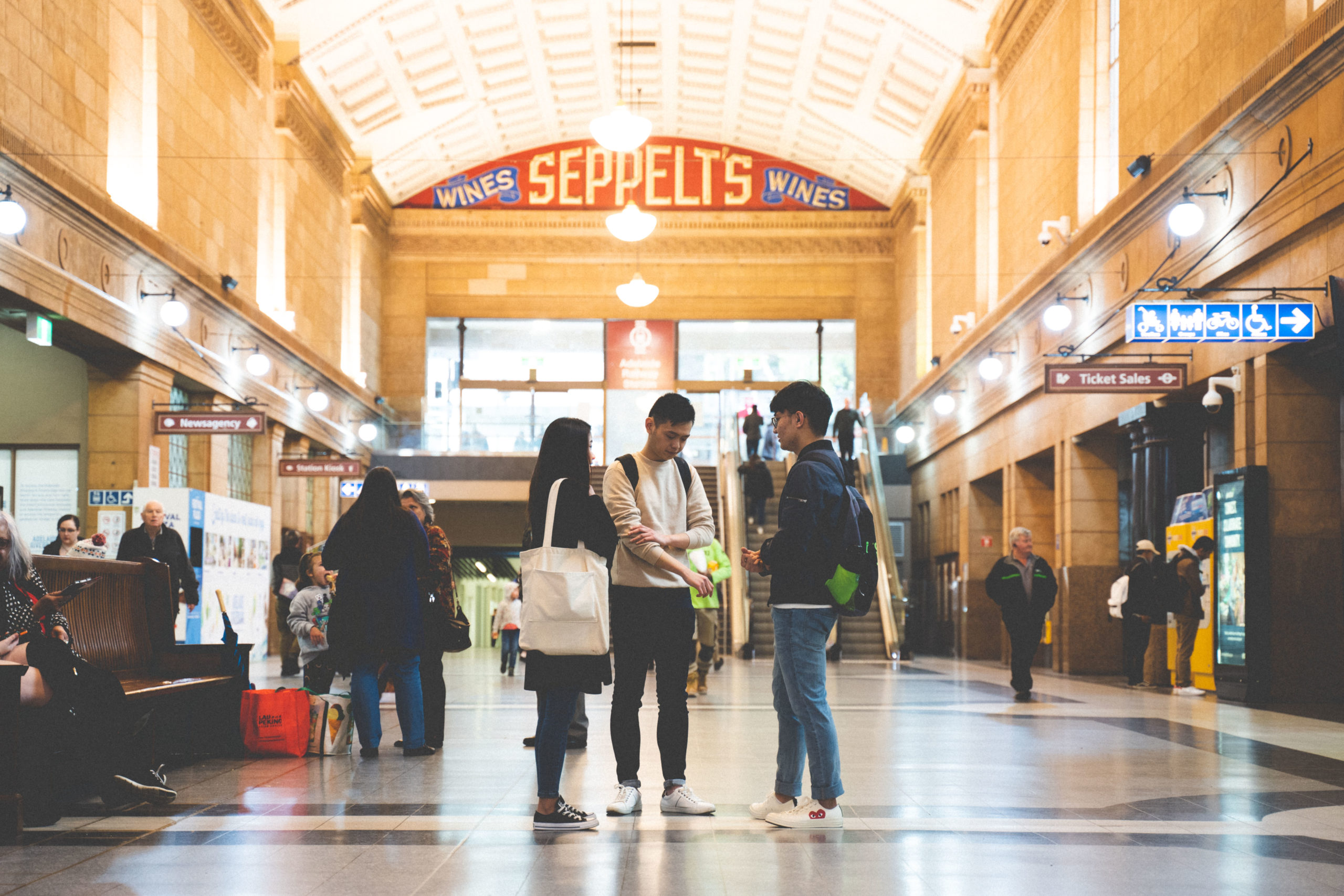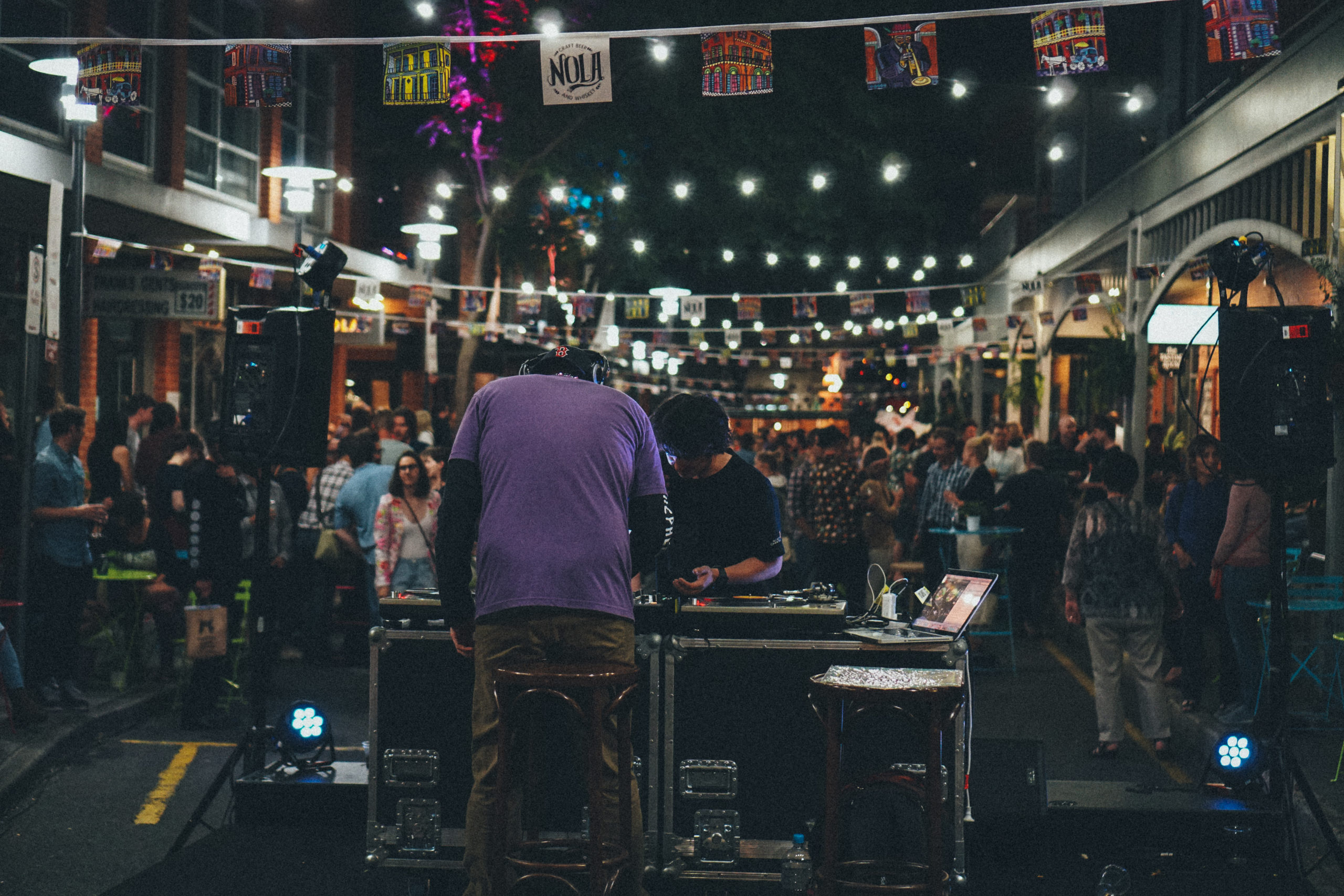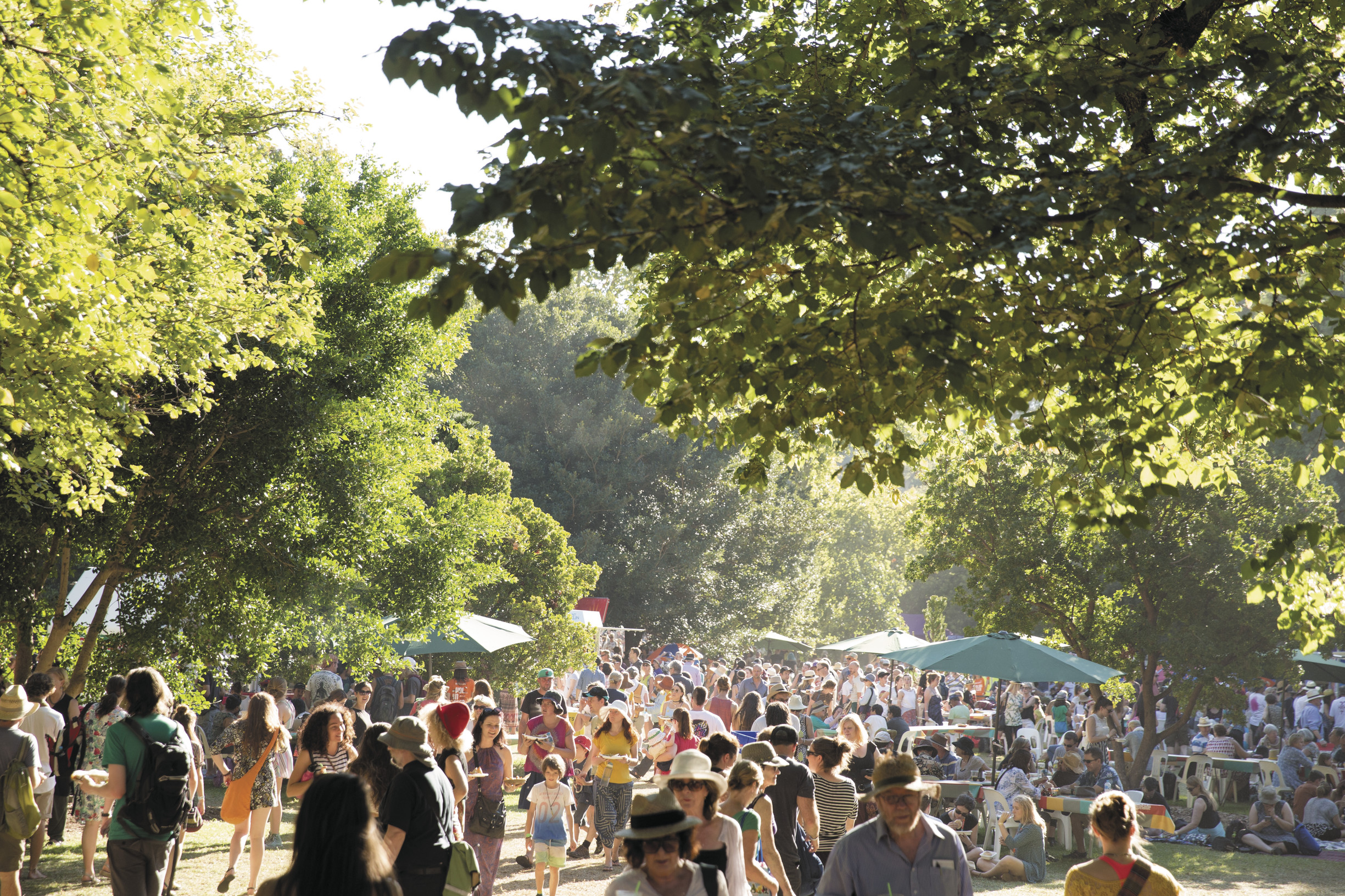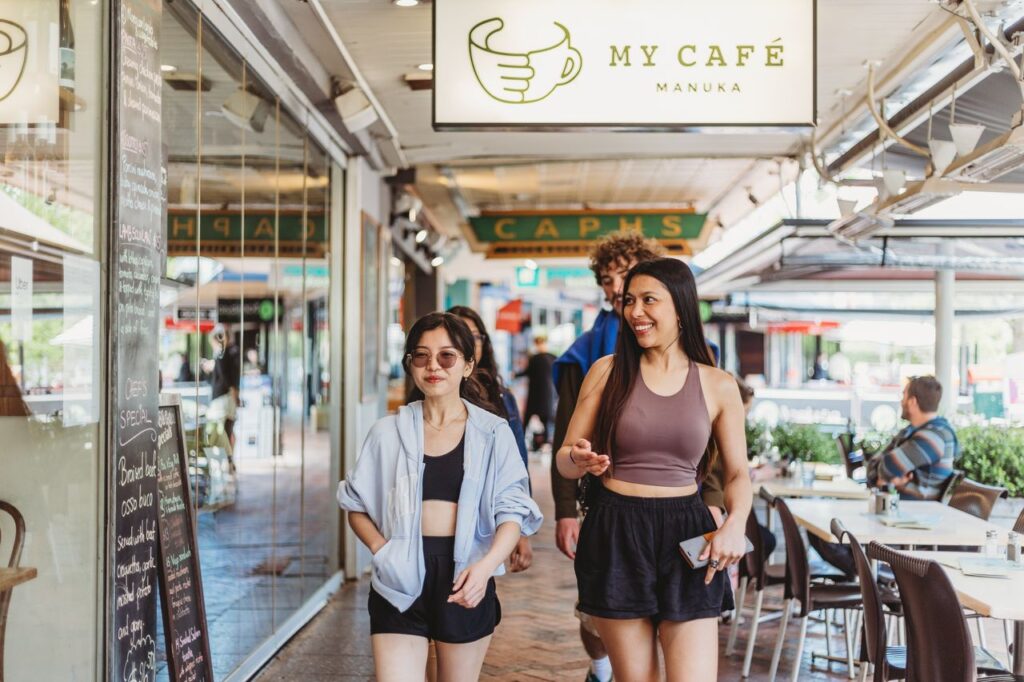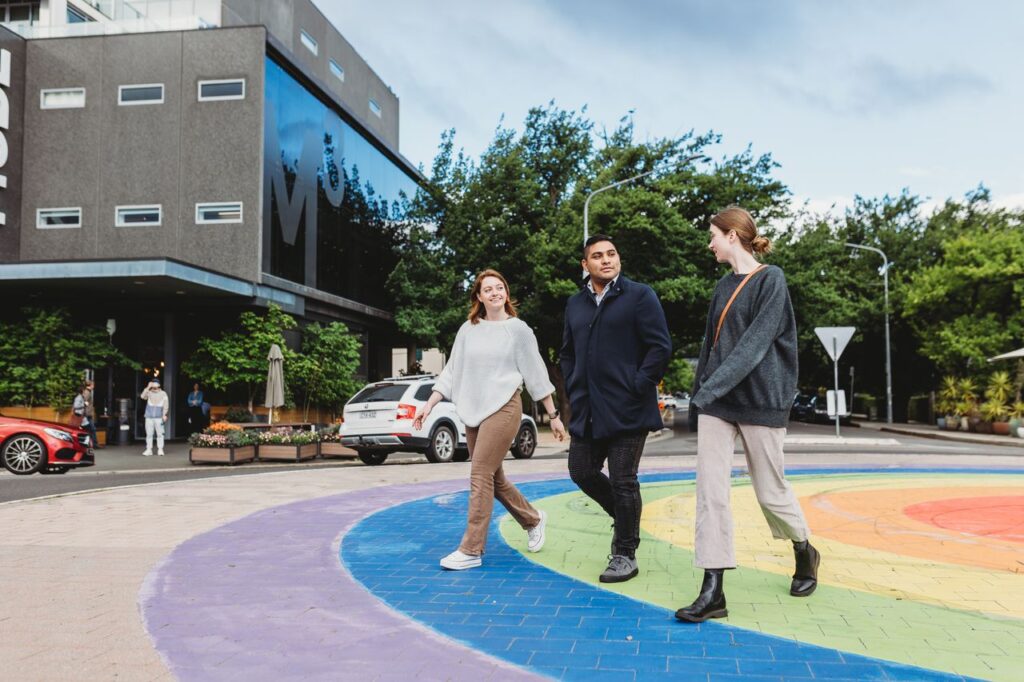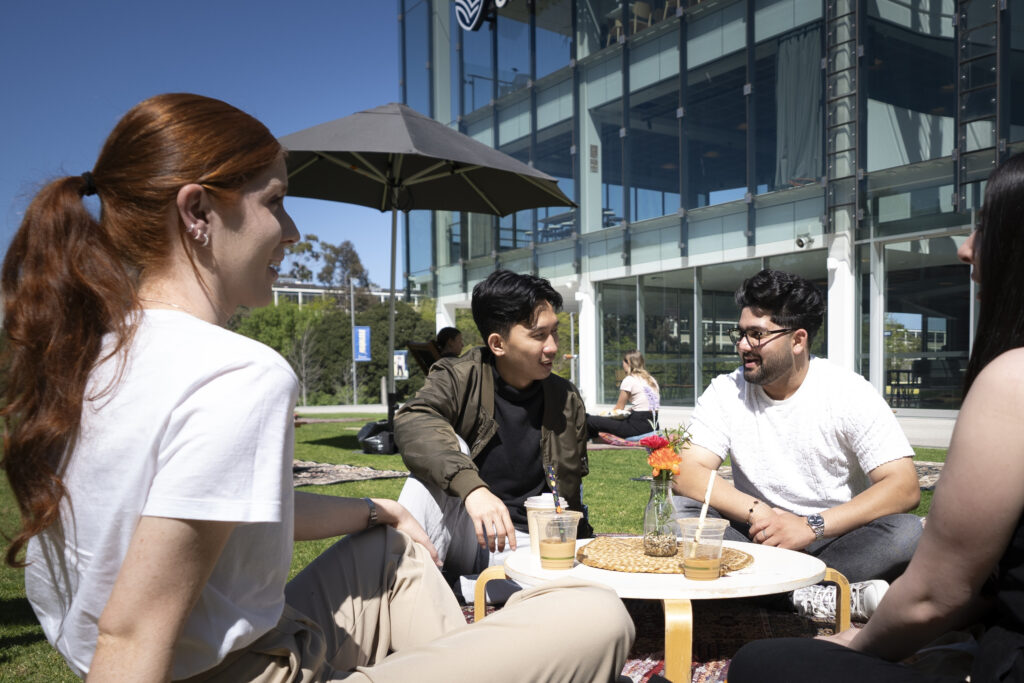Looking for a vibrant, exciting destination for your overseas student adventure? South Australia, the ‘Festival State’, might just be for you! Adelaide is known for its diverse cultural scene, classic architecture and unique layout. Surrounded by parks on all sides, the city offers a picturesque place to live and work.
There are loads of great reasons to study in Adelaide, including its amazing educational institutions, stunning natural beauty and awesome opportunities for graduates. It is also an affordable choice compared to other capital cities in Australia.
To learn more, check out this ultimate guide to the cost of living in Adelaide!
Accommodation
Inner city
As with any of Australia’s capital cities, places in or near the city will be more expensive than options a bit further out.
If you want to rent in Adelaide privately, you can expect to spend anywhere from $570 to $650 per week for accommodation in North Adelaide or the city centre. Alternatively, you can look at the inner suburbs. A rental in Magill will set you back around $590 per week, while you can lease a place for $450 to $535 weekly in Mawson Lakes or Pooraka.
Living in a sharehouse is a great way to make the inner city affordable. You can find rooms for rent in Adelaide for around $225 to $300 per week for a room.
Suburbs
If you want to save some money or enjoy a relaxed pace of life, you might consider moving to one of the leafy suburbs.
For instance, in Mile End, Thebarton and Torrensville, you can rent a house for around $550 to $595 per week. Alternatively, you can find a place in campus-adjacent areas like Bedford Park and St Mary’s for between $520 and $580 weekly.
If you want to save even more, you can find rooms in sharehouses for rent in Adelaide’s suburbs for about $200 to $275 each week.
Student accommodation
Student housing can be a fantastic choice, as it is usually conveniently located close to universities, and your rent includes bills like internet and electricity.
The weekly cost of student accommodation will depend on a variety of factors, such as location and whether you are sharing a room or apartment. You can expect to spend anywhere from $240 to $510 per week.
Homestay
Want to experience what life is really like in Australia while enjoying all the comforts of home? You might be a good fit for homestay.
In a homestay arrangement, you live with a local family, and your rent will cover your room, bills and usually some meals as well. Depending on your arrangement, you’ll pay $320 to $370 per week for homestay in Adelaide.
Which one to pick?
When it comes to choosing where to live, it’s important to weigh your options carefully. You’ll want to be sure that you select a suburb you’ll love within your budget when considering the cost of living in Adelaide.
While places close to the city can be more expensive, it can save you money on public transport and time on your commute. On the other hand, living further out can mean enjoying more space and less noise.
Public transport
Almost all of Adelaide’s world-class educational providers have campuses within the centre of the city, known as the central business district or CBD. However, thanks to the excellent public transport, even campuses on the outskirts of town are easy to get to.
The public transport network is called the Adelaide Metro. It includes buses, trains and trams that you can use to travel across the city and its surrounds.
You’ll need to buy a metroCARD and load it with some money before you can use the network. Once you’ve got your metroCARD, it’s a good idea to register it online, so you can transfer any funds if you lose it.
Once you’ve tapped on, your fare will be valid for the next two hours, so you can travel anywhere on the network during that time. You don’t need a metroCARD to use the free tram in the CBD.
The city even operates many bus routes after midnight, which makes it easy to enjoy a night out or a late study session with friends. There are also taxis and rideshare options, like Uber, Ola and DiDi.
Concession rate
If you’re a full-time international student engaged in tertiary education, you may be entitled to a concession card, which gives you a 50% discount on Adelaide’s public transport fares. Alternatively, you can purchase a 28-day metroCARD pass for just $56.10*, which you can use for unlimited travel during that period.
It’s important to remember to carry your student card with you at all times when you’re travelling on a concession ticket.
*prices are subject to change.
Food
Eating out
Adelaide has a world-renowned food scene, so you’ll want to make sure you get out regularly to sample some of the best dining Australia has to offer. Luckily, there is a wide range of eateries catering to a variety of budgets, so you’ll be sure to find something delicious in any price range.
It’s important to remember that waiters and servers in Australia receive a high minimum wage. This means you may spend a little more than you’re used to on a meal, but this helps ensure staff are fairly paid for their time.
Additionally, Australia does not have a tipping culture, so you don’t have to factor this into the price you’ll pay for food. You may be asked if you would like to leave a tip, but you are not expected to do so.
You can expect a cafe breakfast in Adelaide to set you back anywhere from $15 to $25, while a coffee or beverage will add $5 to $10 to your bill.
A meal at an affordable restaurant can cost anywhere from $20 to $55 per person, but you can often find great deals or student discounts in the city and around your campus.
Eating in
Of course, it’s a good idea to balance meals out with plenty of wholesome, home-cooked food. Not only will this help you ensure you get a balanced diet, but it’s also a fantastic way to save money while living on a student budget.
On average, people in Adelaide pay $171 per week for groceries, but you will likely spend less if you are only shopping for yourself. You can expect to pay around $2.70 for a litre of fresh milk, $3.97 for a kilogram of rice and $14.60 for a kilogram of chicken fillets.
Don’t forget, you can save even more by choosing nutrient-dense foods, visiting cheaper stores and shopping at the right times.
Entertainment
Nightlife
It’s always best to set aside cash for a night out so you don’t accidentally spend more than you want to!
In Adelaide, some bars and clubs have a cover charge. This is a small fee, usually no more than $10, that you have to pay before you can go inside. While you’re out, you can expect a glass of wine, beer or cider to be about $12 each, while you’ll pay anywhere from $9 to $25 for spirits, depending on the venue.
Shows
There’s always lots happening in the Festival State! Major annual festivals include WOMADelaide, Adelaide Festival, FEAST Festival, Adelaide Fringe and OzAsia, just to name a few! What’s more, many of these are free or offer discounted tickets to students, so you’ll find lots to suit your budget.
Concerts and live music are generally more expensive in Australia than elsewhere in the world. This is because of the increased cost of travelling here and the high wages of security and other staff.
In Adelaide, you’ll usually need to pay at least $50 per ticket for live music or over $100 for a larger concert in a stadium or arena.
Other events, like dance, music or theatre performances, are usually $45 or more, although they can exceed $100 if it is a touring act. You can sometimes get cheaper tickets by choosing seats towards the back of a theatre.
However, you don’t need to break the bank for a fun night out. There are plenty of fun things to do nearby, including markets, festivals and free events, so make sure you check out the city’s calendar to discover what’s coming up.
Movies
While adult cinema tickets in Adelaide can cost over $20 per person, a little research and planning can save on your next movie night.
Many theatres offer cheaper prices on certain days of the week, like Tuesdays or Thursdays. You can even find student nights, where you could score tickets for as little as $8. Check out the cinemas near you to see what’s on offer.
If you can’t go on a cheaper night, make sure you still take your student ID, as most theatres have concession pricing available. Also, don’t forget to check your local cinema for membership programs. These programs can be a great way to get awesome freebies, like tickets, popcorn and drinks.
Fitness
Want to get active? Luckily, Adelaide is the perfect place for running, cycling, hiking and much more.
If you’d prefer to join a local gym, you can expect to spend anywhere from $15 to $30 per week. Your gym fees will depend on a few factors, such as where your gym is located, the facilities on offer and whether you have access to extras, like group fitness classes and health assessments.
It’s a good idea to look around and compare your options to find out which one is best for you. Don’t forget to check your educational provider as well, as many institutions have on-campus fitness facilities and may even have discounted fees for students.
Find out more about the cost of living in Adelaide and what you can expect to spend with our Calculator.
Public transport
Almost all of Adelaide’s education providers have one or all of their campuses located within the city’s unique, gridded CBD, including the iconic University of Adelaide campus on North Terrace. That means public transport access in Adelaide is very easy. For campuses outside of the city limits, there are frequent buses or trains to get you there.
The city’s public transport network is called the Adelaide Metro. In Adelaide, you’re encouraged to purchase a metroCARD for all of your travel. If you are a full-time international student in tertiary education, you are entitled to a concession card. With your concession card, you are eligible for 50 per cent off regular fares, so make sure you take advantage! You can also purchase a 28-day MetroCard pass for only $51.50* for unlimited travel within that period. This is a major saving and means you rarely need to worry about topping up your card’s balance any time you want to travel on a train, tram or bus.
Ensure you carry your student card with you at all times on public transport when using concession fares in case ticket inspectors want to inquire. Also, make sure to get your metroCARD registered so that if you misplace it, you won’t lose any of the credit you’ve purchased.
Did you know? A metroCARD fare is valid for two hours from the first validation and you can travel anywhere on any mode of public transport within two hours of tapping on.
Luckily for Adelaide residents, the city has after-midnight bus services on almost every bus route to and from the city. So, no matter where you live, you can still enjoy a night out at your favourite bar or a late study session with friends. Taxis and ride-sharing services such as Uber, Ola, and DiDi are also available, with prices varying depending on where you live.
*Price subject to change.
Food
If you want to take full advantage of Adelaide’s food scene, you will want to make sure you set aside time to go out for meals. Adelaide is full of world-renowned restaurants, multicultural eateries and busy cafés. Plus, it’s easy to find something affordable, no matter your budget.
It’s important to remember that in Australia, waiters and servers get paid a liveable minimum wage. This means that your sandwich or salad may cost a little bit more than you expect, but it also means the staff are being paid fairly for their time. Unlike some other places you may have visited, such as the United States, Australia does not have a tipping culture. Places may ask if you would like to tip, but it’s not necessary.
On average, breakfast at a cafè in Adelaide is going to cost you $15-$20, but be sure to budget a bit extra if you’d like to add a coffee or freshly blended juice. Australia is famous around the world for its coffee and fresh fruit and vegetables, so you can expect to get a high-quality beverage for the price you pay. For lunch, you will likely have to spend around $16-$20, but keep an eye out for meal deals – eateries around the city will usually offer a discounted lunch with extras such as drinks. Dinner might be slightly more expensive at around $25 per meal.
Some eateries or stores on your campus might also have cheap lunch and coffee deals, and being a member of your student union can also help you save money. For example, The General at The University of Adelaide North Terrace Campus offers $2 coffees and has simple grab-and-go food options. If you are a member of the Adelaide University Union, you’re in luck! They have ongoing discounts at various restaurants on and off-campus. Check the food options and exclusive deals that are available at your educational institution, as all of these can help contribute to a lower cost of living in Adelaide as an international student.
Entertainment
Nightlife
Depending on your circumstances, it’s always worth planning ahead for a night out. You don’t want to accidentally splurge your weekly savings just by walking into an expensive venue! Some bars that feature music or other live entertainment will likely enforce a cover charge, but rarely more than $10. While there, you can expect a glass of wine, beer or cider to cost approximately $12 each. Spirits might be anywhere between $9-$25 depending on the venue.
Events
As the ‘Festival State’, there are always events happening in Adelaide. Major festivals in Adelaide include WOMADelaide, Adelaide Festival, FEAST Festival, Adelaide Fringe, OzAsia and IndoFest – just to name a few! Many attractions within these festivals are free or offer discounted student tickets, so there’s always something to suit your budget.
Concerts and live music can be more expensive in Australia. Performers have to spend more to travel here, and the costs associated with paying bar and security staff add up. In Adelaide, $50 or more per ticket is an expected figure to pay. For a larger act at a stadium or arena, over $100 per ticket is typical. Other events like dance or theatre performances and dance parties will usually cost $45 or more – if it’s a touring musical, tickets can be well over $100, but you’ll find discounted tickets if you’re happy to sit nearer the back of the theatre. Always make sure you investigate the weekly city guides, as there are plenty of regular free events taking place around Adelaide.
Cinemas
A movie at any of the city’s cinemas will likely cost over $20 for an adult ticket, which may sound like a lot compared to Netflix at home. However, as a student in Australia, you will often find cheaper student or concession tickets available (just keep your student card on you) – some cinemas even offer ‘student nights’ with tickets as low as $8. Also, make sure you take advantage of any cinema membership programs that will get you discounted tickets and free popcorn and drinks.
Fitness
If you prefer to spend your downtime at the gym, a membership at one of the more common gym franchises like Goodlife, Zap Fitness or Anytime Fitness, will cost upwards of about $15 per week. Make sure to ask about any student discounts on memberships or classes. Alternatively, joining your education provider’s gym or sports teams could be a much more affordable and convenient option.
For more information on the cost of living in Adelaide, make sure to check out our Cost of Living Calculator.

